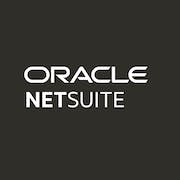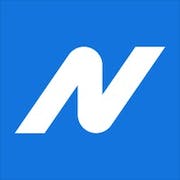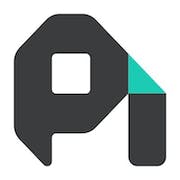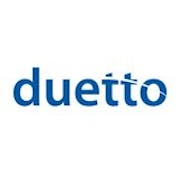In today's fast-paced business environment, revenue management software has become an essential tool for maximizing profits, optimizing prices, and gaining a competitive edge. However, choosing the right software can be a daunting task. With so many options available, it's easy to get lost in a sea of features and functionalities. That's why we're here to help you navigate this complex landscape and find the perfect solution for your business needs. In this buyer's guide, we'll provide you with an in-depth analysis of the top revenue management software on the market, so you can make an informed decision and take your business to the next level.
What is Revenue Management Software
Revenue Management Software is a digital solution that optimizes revenue for businesses in a variety of industries. It uses data analytics and algorithms to forecast demand, determine pricing strategies, and allocate resources efficiently. Revenue Management Software helps businesses increase their profits by maximizing revenue while minimizing operational costs. Revenue Management Software is widely used in the travel and hospitality industry, where companies need to manage a high volume of bookings and inventory. However, it is also used in other industries, such as retail, transportation, and telecommunications. Here are some common use cases for Revenue Management Software: - Pricing optimization: Revenue Management Software analyzes market trends, customer behavior, and competitor pricing to determine the optimal pricing strategy for a product or service. - Demand forecasting: Revenue Management Software predicts future demand based on past data and market trends. It helps businesses allocate resources and plan for future inventory needs. - Inventory management: Revenue Management Software tracks inventory levels and recommends the optimal pricing strategy to sell out inventory. - Yield management: Revenue Management Software helps businesses maximize revenue by selling products or services at the right price at the right time. - Personalization: Revenue Management Software collects customer data and preferences to create personalized offers and promotions. This helps businesses attract and retain customers. Revenue Management Software is used by a wide range of companies, from large enterprises to small businesses. It is particularly useful for companies with high volume transactions and complex operations. Examples of industries that use Revenue Management Software include: - Airlines and online travel agencies (OTAs) - Hotels and resorts - Car rental companies - Retailers - Telecommunications companies In conclusion, Revenue Management Software is a powerful tool that helps businesses increase their profits by optimizing revenue. It is widely used in the travel and hospitality industry, but it is also becoming popular in other industries. With its advanced analytics and data-driven approach, Revenue Management Software is a valuable asset for any business looking to thrive in today's competitive market.
Benefits of Revenue Management Software
Revenue management software is a crucial tool for businesses of all sizes. With the growing complexity of the market and constantly changing consumer behavior, it is essential for businesses to be able to manage their revenue in a more efficient and effective way. This is where revenue management software comes in. Here are the main benefits of revenue management software: 1. Increased Revenue: Revenue management software helps businesses optimize pricing and inventory decisions to ensure maximum revenue. It does this by analyzing customer behavior, market trends, and historical data to provide critical insights that can help companies make informed decisions. 2. Improved Efficiency: Revenue management software automates many of the time-consuming tasks that would otherwise be handled manually. This helps businesses to save time, reduce errors, and improve efficiency. 3. Competitive Advantage: Revenue management software provides businesses with a competitive advantage by helping them stay ahead of the competition. By making informed pricing and inventory decisions, companies can attract more customers, increase their market share, and improve profitability. 4. Increased Customer Satisfaction: With revenue management software, businesses can offer competitive pricing and improve inventory availability. This helps to enhance customer satisfaction, increase loyalty, and improve their overall experience. 5. Real-Time Data and Insights: Revenue management software provides businesses with real-time data and insights, giving them the ability to make informed decisions quickly. Companies can adjust pricing and inventory levels in real-time based on market trends and customer behavior. 6. Improved Forecasting: Revenue management software helps businesses to forecast demand and sales accurately. This helps them optimize inventory levels, reduce waste, and prevent stock shortages. In conclusion, revenue management software is essential for businesses that want to increase revenue, improve efficiency, gain a competitive advantage, enhance customer satisfaction, and make informed decisions quickly. With the many benefits that revenue management software provides, it is a powerful tool that businesses cannot afford to ignore.
Features of Revenue Management Software
Revenue Management Software is a valuable tool for businesses looking to optimize their revenue and gain a competitive edge. With its advanced capabilities and user-friendly interface, Revenue Management Software streamlines the process of managing prices, inventory, and customer data. Below are ten common features found in modern Revenue Management Software. 1. Price Optimization: One of the primary functions of Revenue Management Software is to offer effective price optimization tools. This feature helps users to optimize pricing strategies based on market demand, customer behavior, and other factors. 2. Forecasting: Revenue Management Software uses advanced forecasting algorithms to analyze and predict future demand patterns. This data helps business owners make better informed decisions about pricing, inventory, and revenue optimization. 3. Inventory Management: A key feature of Revenue Management Software is its ability to manage inventory levels. The software can set minimum and maximum inventory levels, trigger alerts when stocks get too low, and automatically update inventory levels. 4. Channel Management: With Revenue Management Software, users can manage various sales channels, from physical stores to online marketplaces. This feature helps businesses reach a wider audience and optimize sales across multiple channels. 5. Reporting and Analytics: Effective reporting and analytics tools are an essential feature of modern Revenue Management Software. The software provides detailed analysis of sales performance, revenue and profit margins, and other critical metrics. 6. Dynamic Pricing: Dynamic pricing is a feature that allows business owners to adjust prices in real-time based on market demand and competition. This ensures that a business stays competitive in pricing and keeps up with the market trends. 7. Customer Segmentation: Revenue Management Software can segment customers based on behavior and purchase patterns, allowing businesses to target customers with specific offers and promotions. 8. Integration: This feature allows Revenue Management Software to integrate with other business software, such as point of sale systems, online marketplaces, and social media platforms. This integration creates a seamless workflow and streamlines the entire process. 9. Personalization: With the help of advanced machine learning algorithms, Revenue Management Software can personalize offers and promotions based on the preferences of individual customers. This personalization creates a better customer experience and helps to improve sales. 10. Pricing Analytics: Pricing analytics is a tool that provides insight into market demand, competitive pricing, and customer behavior. With this data, businesses can make informed pricing decisions and optimize their revenue strategies more effectively. In conclusion, Revenue Management Software offers a range of valuable features that help businesses improve their revenue optimization, inventory management, and customer targeting. From advanced forecasting to personalized promotions, Revenue Management Software is an essential tool for businesses looking to stay competitive and maximize profits in today's market.
Considerations of Revenue Management Software
Revenue management software is essential for businesses in today's fast-paced economy. With the help of revenue management software, businesses can analyze their financial data to make better-informed decisions. However, choosing the right revenue management software can be a daunting task. Here are some important factors businesses should consider when purchasing revenue management software: 1. Customization: Every business is unique, and so its revenue management requirements will be too. Therefore, businesses should choose revenue management software that can be customized to meet their specific needs. This will help in managing the revenue according to the company's goals. 2. Integration: When selecting revenue management software, it is important for businesses to consider how easy it is to integrate with other software and platforms. This is essential to avoid duplication of work and smoothen the flow of information across various teams. 3. Support: Revenue management software can be complex, so having a customer support team to help with issues is essential. Businesses should look for revenue management software that offers robust customer support options like phone, email, and chat support for any issues that may arise. 4. Reporting Capabilities: Reporting is an important component of revenue management. Therefore, businesses should look for a revenue management software solution that offers robust reporting capabilities. This software can help businesses track their progress and identify areas for improvement or revenue generation opportunities. 5. User-Friendliness: A software solution's ease of use is important, especially for companies with non-technical staff. Therefore, it is important to opt for revenue management software that is intuitive and user-friendly. This will increase the users' productivity as there will be no need for extensive training sessions. 6. Scalability: A business's revenue management requirements can grow as the company expands. Therefore, businesses should opt for revenue management software that can grow and scale along with them. This ensures that the business does not outgrow the software solution. 7. Cost: Cost is a crucial factor in any business decision, and revenue management software is no exception. Generally, there are two types of revenue management software solutions: perpetual licensing and subscription-based. Businesses should choose a revenue management software solution that fits within their budget and offers the best value for money. In conclusion, choosing the right revenue management software is a critical decision for businesses. To make the right choice, businesses must consider the factors listed above in-depth. Customization, Integration, Support, Reporting Capabilities, User-friendliness, Scalability, and Cost are all crucial factors that will significantly contribute to the decision-making process. By taking these factors into consideration, businesses can make an informed decision that is tailored to their unique requirements.
Software Trends for Revenue Management Software
In 2023 and beyond, the hospitality industry will continue to evolve and advance in terms of revenue management software trends. To keep up, hotels need to prioritize integrating technology into their business model. One of the major trends to watch out for is variable demand. The demand for rooms and services fluctuates throughout the year, and the hospitality industry needs to have the agility to adjust to these changes in demand. Another trend is the short-term booking window, which requires hotels to optimize rates, inventory, and operations, at a moment's notice. Additionally, dynamic optimization allows hotels to maximize their resources and pricing strategies based on real-time data. Real-time forward-looking data is another trend that will be important in 2023. It provides insights into future demand dates, guest inquiries, and consumer price sensitivities enabling hotels to make informed decisions. With data transparency, hotels can share information across departments to make better-informed decisions. Finally, cooperation ensures that all departments within a hotel are working together towards common revenue goals. As the world emerges from the pandemic, hotel revenue management software trends will continue to evolve. Hotels should keep these trends in mind as they adapt to a post-pandemic business environment and position themselves for success in the future. By staying ahead of the curve and adopting innovative technologies, hotels can maximize profitability and better serve their guests.








